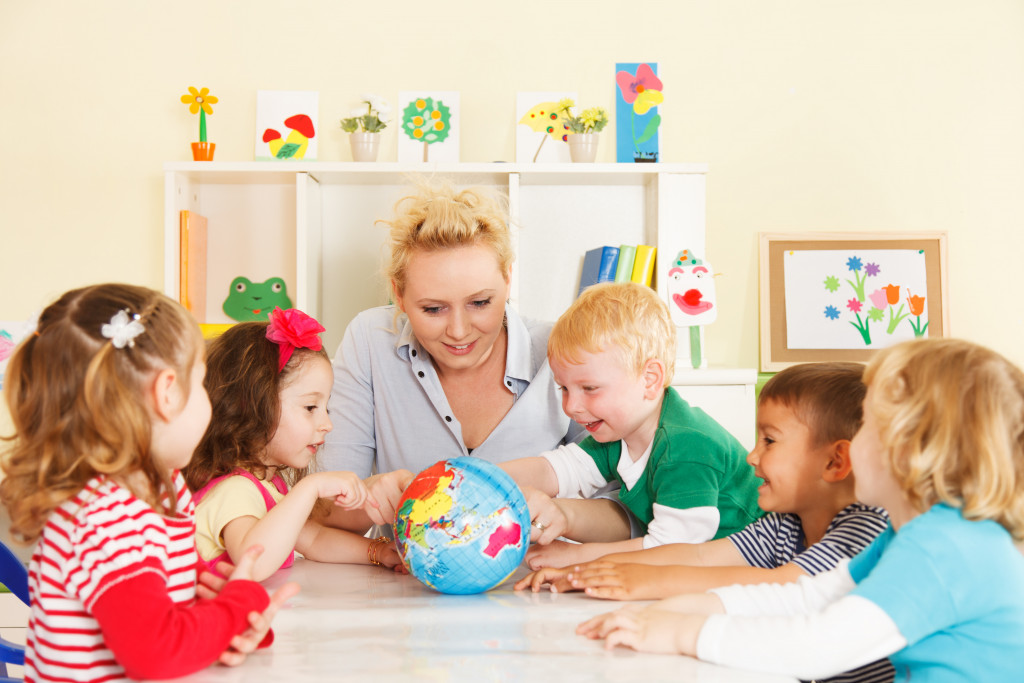- Ensure your child is ready for the preschool experience by evaluating their developmental milestones and readiness skills.
- Get your children used to the environment before classes start by talking about what will happen at school.
- Help kids develop social skills such as sharing toys, taking turns, and using polite words in conversations.
- Establish a new routine for your children that includes breakfast every morning, brushing their teeth, and getting dressed in school clothes.
- Learn about separation anxiety and how to help your kids cope with being away from you.
Believe it or not, the time is almost here! Your little one is about to start school, and you’re probably feeling mixed emotions. Are they ready? Is this the right decision? How can I help them transition? Don’t worry; read on for tips on preparing your children for the preschool experience.
Is Your Child Ready for Preschool?
Starting preschool can be a big step for both parents and children, but it doesn’t have to be frightening. With the proper preparation and support, your child can successfully transition into their new educational environment.
School Readiness Checklist
Before enrolling in preschool, you must consider if your little one is ready for this next stage of learning. By taking time to evaluate their developmental milestones and readiness skills, you can ensure they will get the most out of their preschool experience.
- Language and Communication Skills: The ability to follow simple directions, answer questions, verbalize feelings, use words for communication, and respond to stories or songs.
- Problem-Solving and Reasoning Abilities: The capacity to solve problems by recognizing patterns and similarities, sorting objects into categories, counting objects up to five or six accurately, and understanding concepts like over/under.
- Gross Motor Skills: The coordination of large muscle groups used for activities such as walking up stairs one foot per step; kicking a ball in the same direction twice; jumping on two feet; throwing a ball with some accuracy; beginning pedaling skills on a tricycle or bike etc.
- Fine Motor Control & Manipulation: Hand-eye coordination (stacking blocks), squeezing glue bottle properly without spilling it all out, scribbling shapes that look like circles or diamonds, etc., using scissors appropriately (without tearing paper), etc.
- Social Skills: Being able to wait their turn while playing with peers; sharing toys if someone else wants them; showing empathy when another child is hurt or crying; speaking nicely in conversations with adults/peers etc.

Preparation Tips for Parents
Preparing your child for preschool can be a daunting task. With the proper preparation and support, however, you can ensure that your little one is ready to take on this new educational adventure. Here are some tips for parents to help their children transition into preschool with ease.
Get Used to the Environment
The first step in preparing your kids for preschool is getting them comfortable with their surroundings. Visit the school before classes start and introduce your children to their teachers and classmates. The more familiar they are with their environment, the less anxiety they will feel when it’s time to go to school. It also helps to talk about what will happen in preschool classes—talk about different activities, new friends they’ll make, and so forth.
Develop Social Skills
Another essential part of preparing your children for preschool is helping them develop social skills that will be useful in a classroom setting. If they haven’t been around other kids much before now, it might take some practice for them to get used to playing cooperatively and following directions.
Talk with them about sharing toys, taking turns, using polite words in conversation (like “please” and “thank you”), and how to treat other people with kindness and respect. Role-playing activities like pretending to be teachers or students can also help develop these skills!
Establish a New Routine
Parents can help their children prepare for preschool by setting up a routine. This means getting them to bed early, so they are rested and have enough school energy the next day. It also means eating breakfast every morning, brushing their teeth, and putting on school clothes before leaving the house. Having a routine will make it easier to adjust when it is time to go to preschool!

Dealing With Separation Anxiety
When kids start school, it can be hard for them to say goodbye to their parents. This is called separation anxiety. It is normal and expected for children to feel scared or worried when they are away from home without their parents. You should have a talk with your child and help them understand that it is okay to feel this way and that they will be back together soon.
For example, you can say goodbye to your kids in a fun and unique way before they go to school. Ideas include:
- Giving a big hug and kiss
- Saying, “I love you!”
- High-fiving
- Making funny faces
- Waving goodbye
- Blowing kisses or giving a special toy or item to take with them
Preparing your children for preschool doesn’t have to be stressful! By visiting the school beforehand, talking about what will happen there, teaching social skills through role-play activities, and providing plenty of encouragement, you can ensure that your little ones are ready for this exciting next step in life. Good luck!

